I promised, during the first part of this article, that the horrid, rancid bitterness of the cakes described therein would be compensated by some better tea today. So, as promised, here it comes. I invite you to bring your well-scoured teapots back to the Douji teatable, and try to forget all that bitterness.
The "Jindou" [golden Douji] is the company's premium blend, overlapping in price with the lower rungs of their "single mountain" ladder. This is the "hong" (red) version, which is supposedly less bitter than the "lan" (blue) versions, although I have not seen the latter. Indeed, this is actually the first time, as far as I can remember, that I have tried the Jindou. I hope for good things.
Jindou is a blend of Banzhangshan [strength/sweetness], Jingmaishan [orchid-nuttiness], and Yiwushan [sweet, dark straw]. The leaves, unlike almost all of the company's other products, are whole, and take a little coercion before they enter the pot unbroken.
The mixture of Yiwushan and Jingmaishan is pleasant, and both components are explicitly obvious in the blend. What remains is bitterness, of the "Xinbanzhang" variety. However, unlike the cakes in part I of this article, the bitterness here is not dominating, and keeps it strong, preventing idleness.
It is solidly enjoyable for the first three infusions, before collapsing into a simple bitterness in the fourth infusion, with the abrasive taste of plantation leaves left in the mouth. By the fifth infusion, it tastes like every other rough mainstream cake, and I draw the session to an immediate close.
Looking at the price of this cake, I think "wishful thinking": a whole cake costs $100 for what is essentially a tough old plantation cake, with a pleasant opening. Bafflingly, the 2010 version costs a frightening $139. I cannot imagine who might be paying those prices.
Looking at the price of this cake, I think "wishful thinking": a whole cake costs $100 for what is essentially a tough old plantation cake, with a pleasant opening. Bafflingly, the 2010 version costs a frightening $139. I cannot imagine who might be paying those prices.
Finally, we have the 2013 "Banzhang".
You may have wondered why I have not decried the usual wrapper destruction that occurs when I open Douji cakes, due to the enormous sticker on the back of each: I have not written of it merely to spare you, Gentle Reader. Rest assured that the stickers are remain as sticky as ever, and the wrappers...
...are just as shredded as ever.
This is big, yellow, and quite bitter - but not as terrifying as the 2013 Nakashan or Jingmaishan cakes from part I of this article. I recall that the 2011 Banzhang was actually quite nice. In a comment on that page, the Duke of N noted that the 2012 Banzhang was copiously bitter - so perhaps the change towards rancid single-mountain cakes occurred last year, and not in 2013.
This tastes rather like Laoman'e, or perhaps Xinbanzhang - certainly it exhibits none of the balanced complexity of real Laobanzhang tea. Both of the former regions habitually pass their leaves off as "LBZ", and I understand that there are border controls in the village of Laobanzhang designed to prevent farmers importing leaves from elsewhere to sell under the guise of local produce.
I quite like it. The kuwei [good bitterness] is strong, but not overpowering, and there is some sweetness buried deep within. It remains in the throat and causes shengjin [pleasant mouth-watering] for some time. There is just enough "going on" to retain the impression of complexity. Were it $50 / cake, I would consider buying it.
However, the price is north of $200. By the tenth infusion, it remains stable and sweet, with an edge of Laoman'e sourness underneath - although, happily, there is no sign of plantation roughness. I imagine that it is some years before this is "sociable" pu'ercha, and I must confess that I probably won't be seeking it to determine if this is the case.
I feel as if I have reached "Douji saturation": the company's products best years, in terms of quality, are far behind it, and all that remains appears to be a bunch of crazy blenders pushing the prices up higher than is tenable. These teas have oh-so-slick branding, but that isn't enough. Douji has to deliver on its promises in order to justify such prices, and all the pretty wrappers in the world cannot compensate for the fact that the last great Douji cakes are now about six or seven years old.
I feel as if I have reached "Douji saturation": the company's products best years, in terms of quality, are far behind it, and all that remains appears to be a bunch of crazy blenders pushing the prices up higher than is tenable. These teas have oh-so-slick branding, but that isn't enough. Douji has to deliver on its promises in order to justify such prices, and all the pretty wrappers in the world cannot compensate for the fact that the last great Douji cakes are now about six or seven years old.


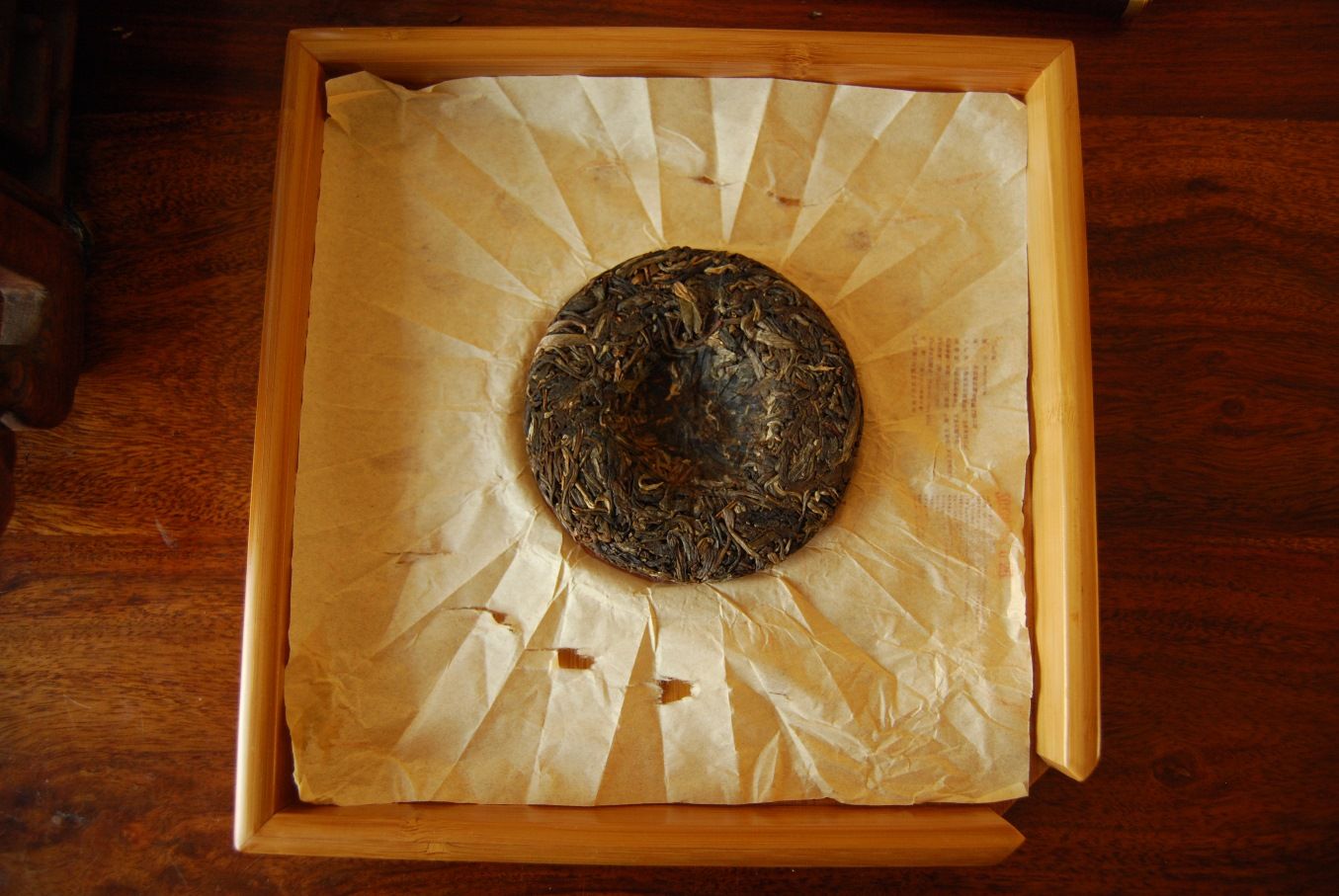
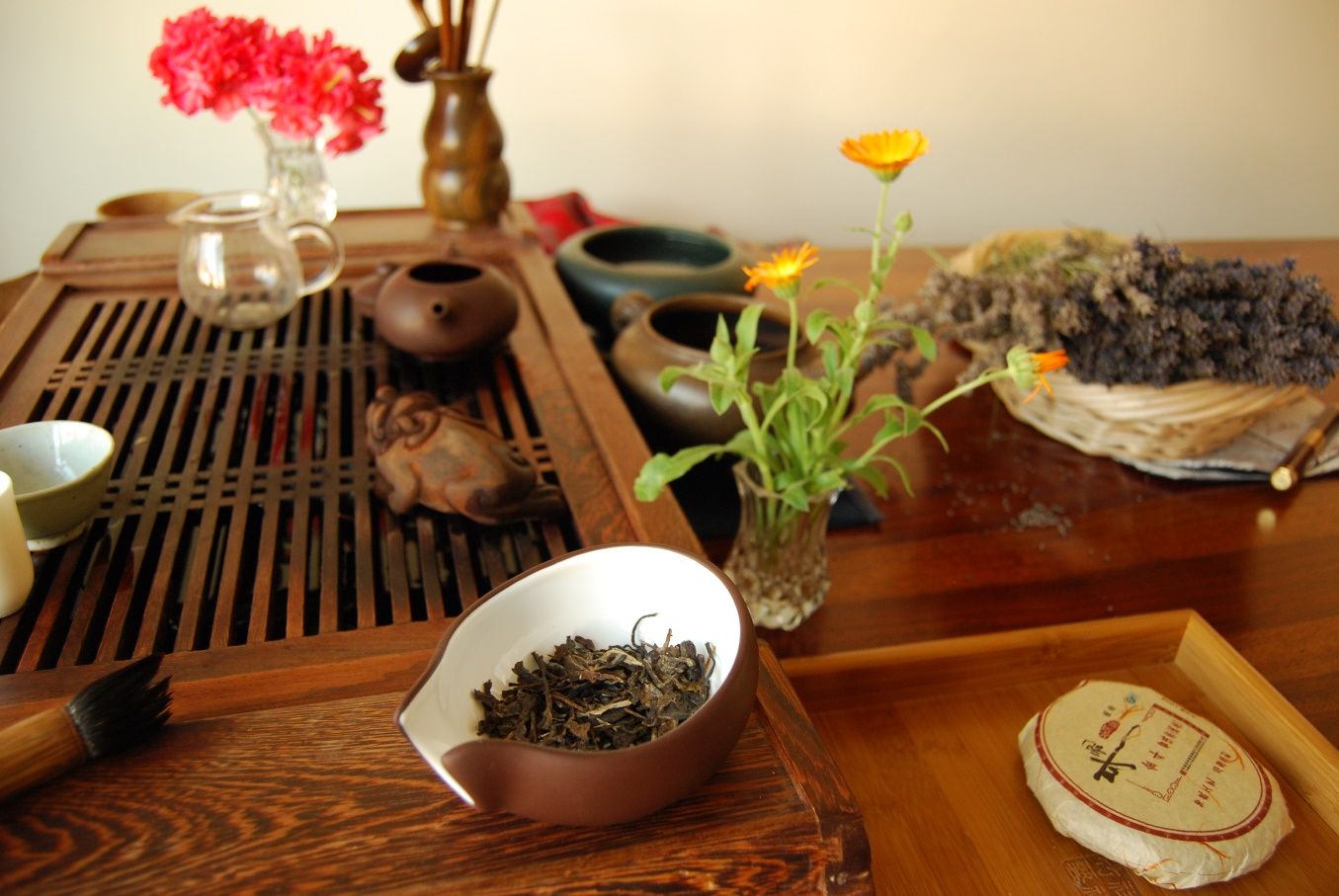
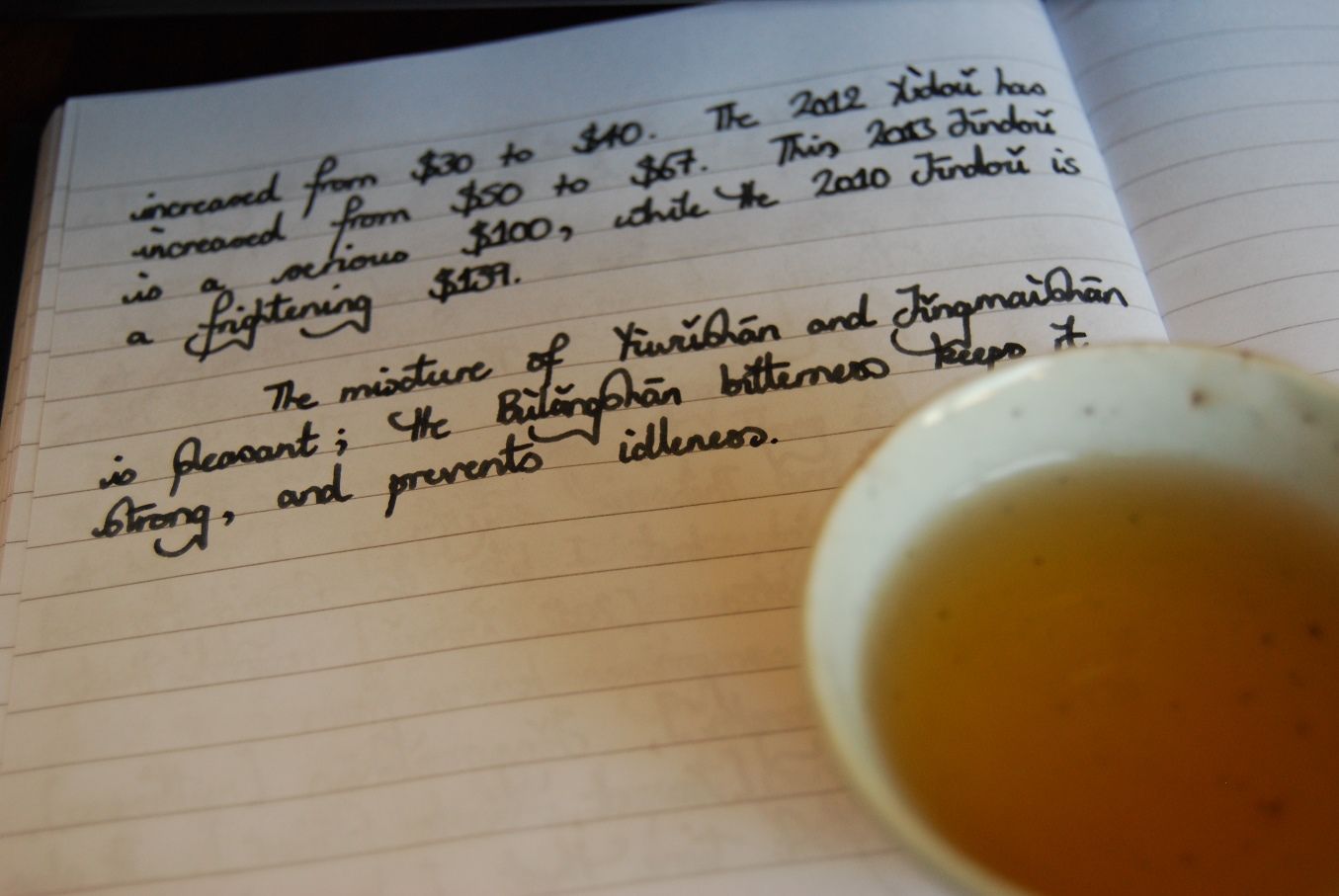
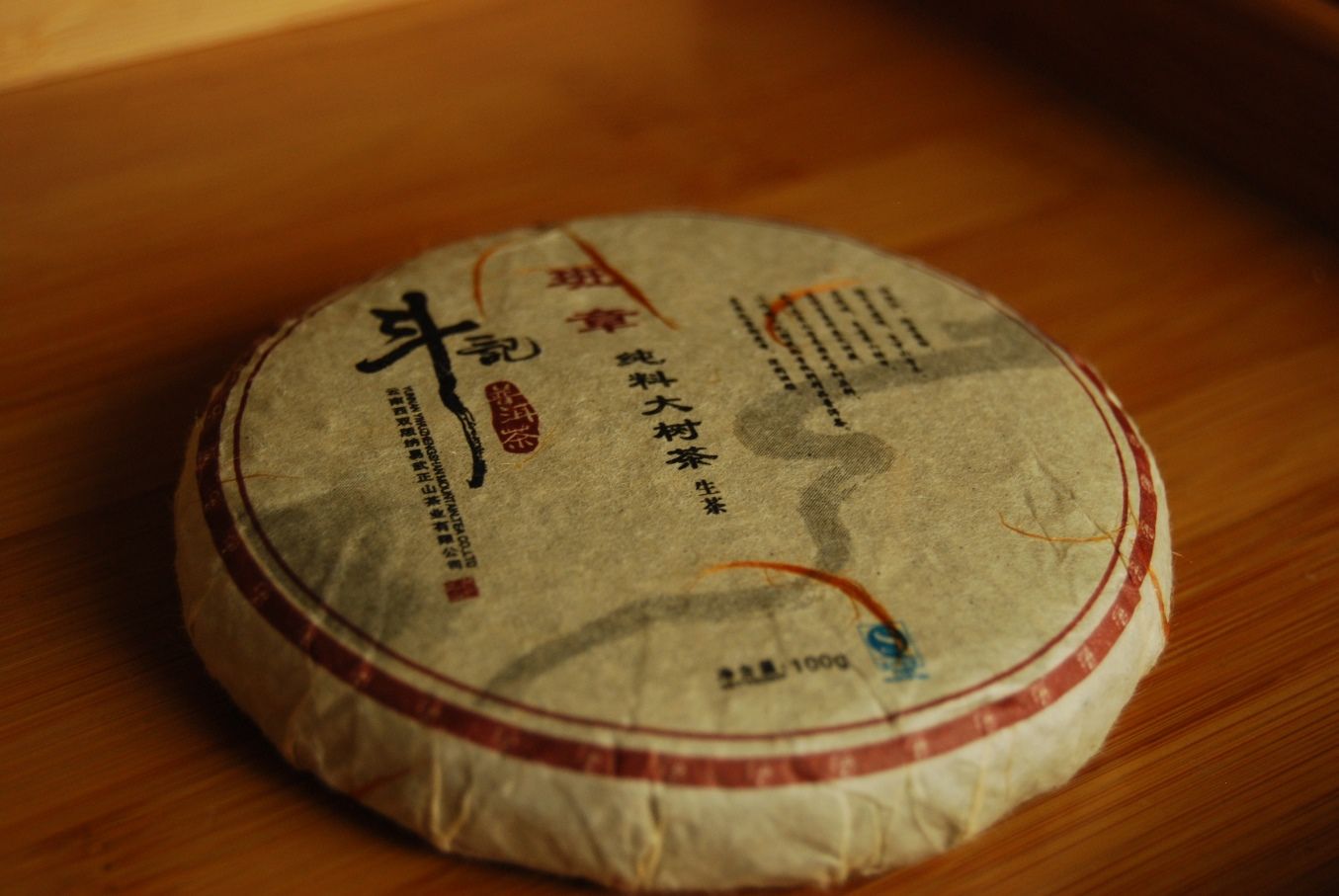
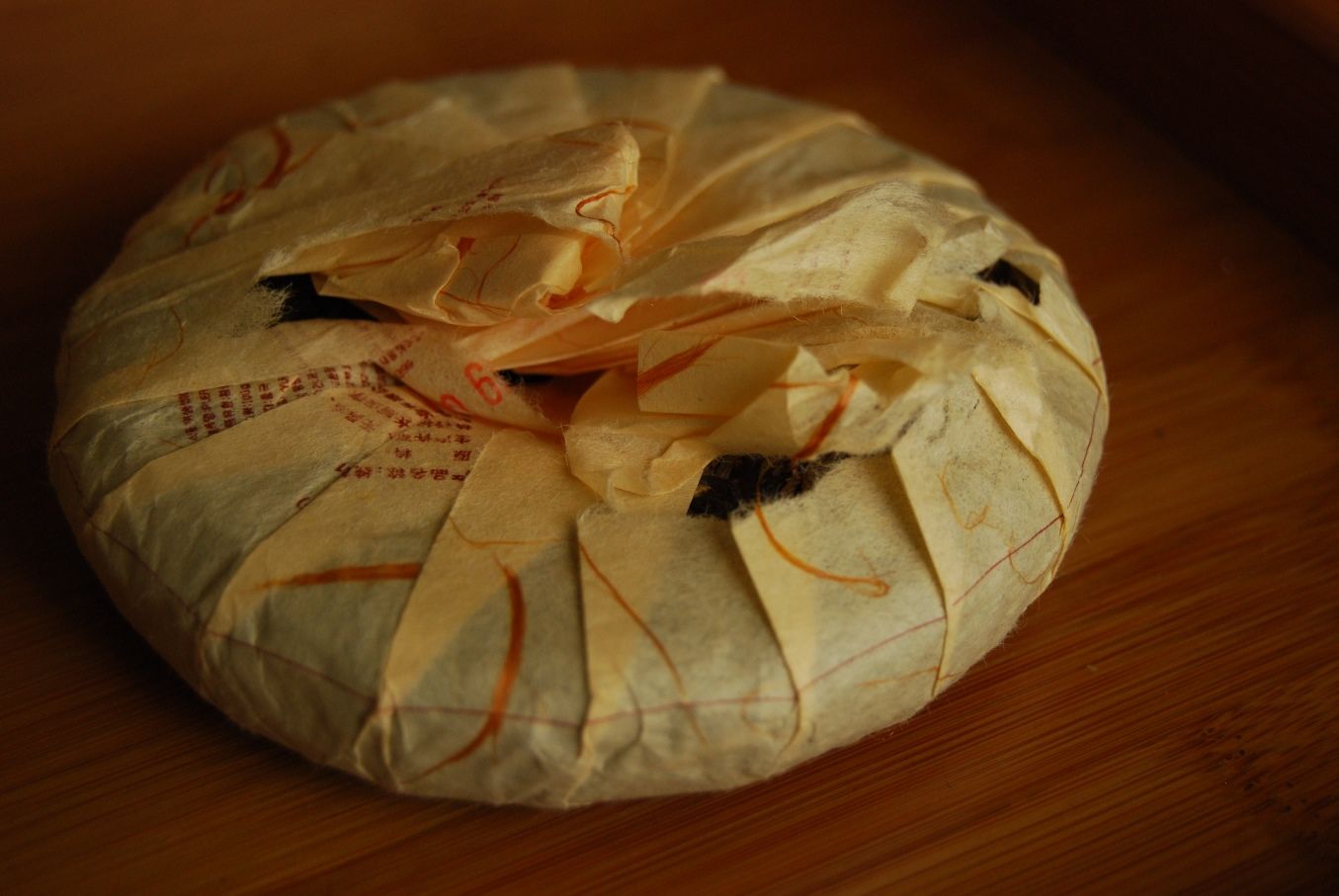
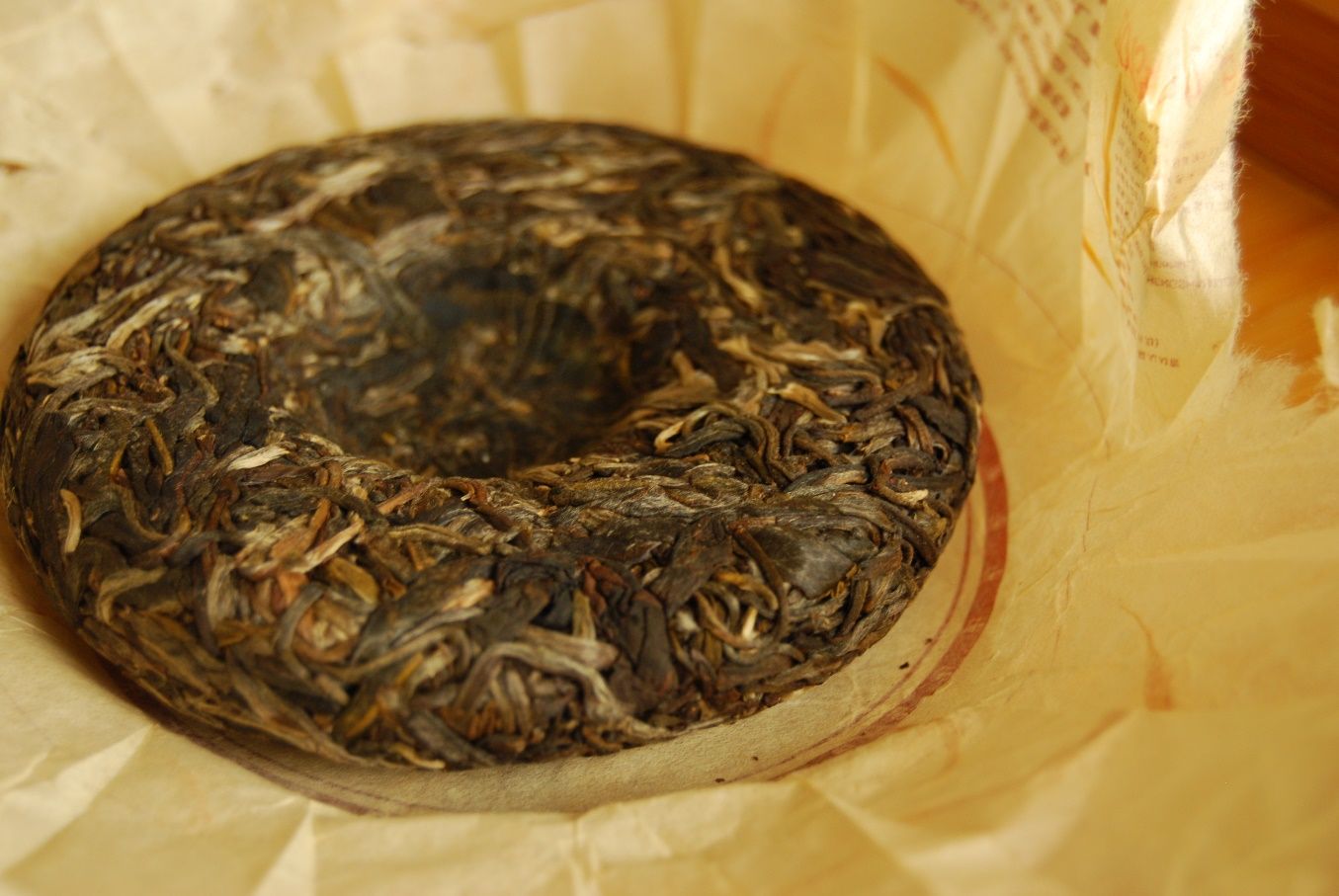
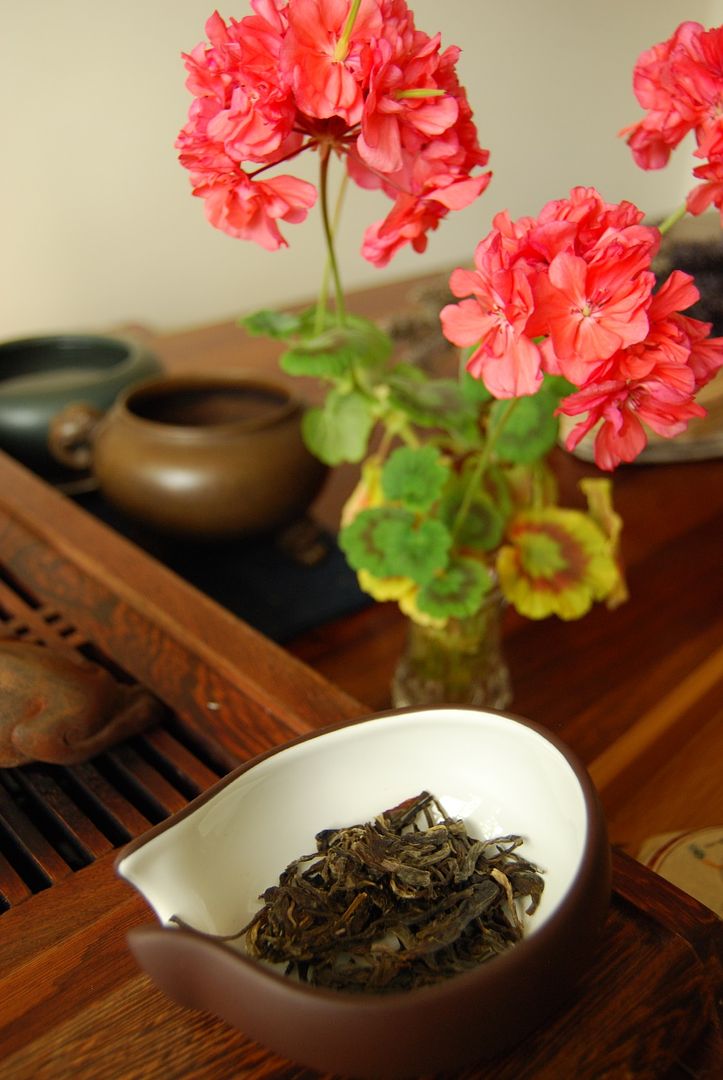
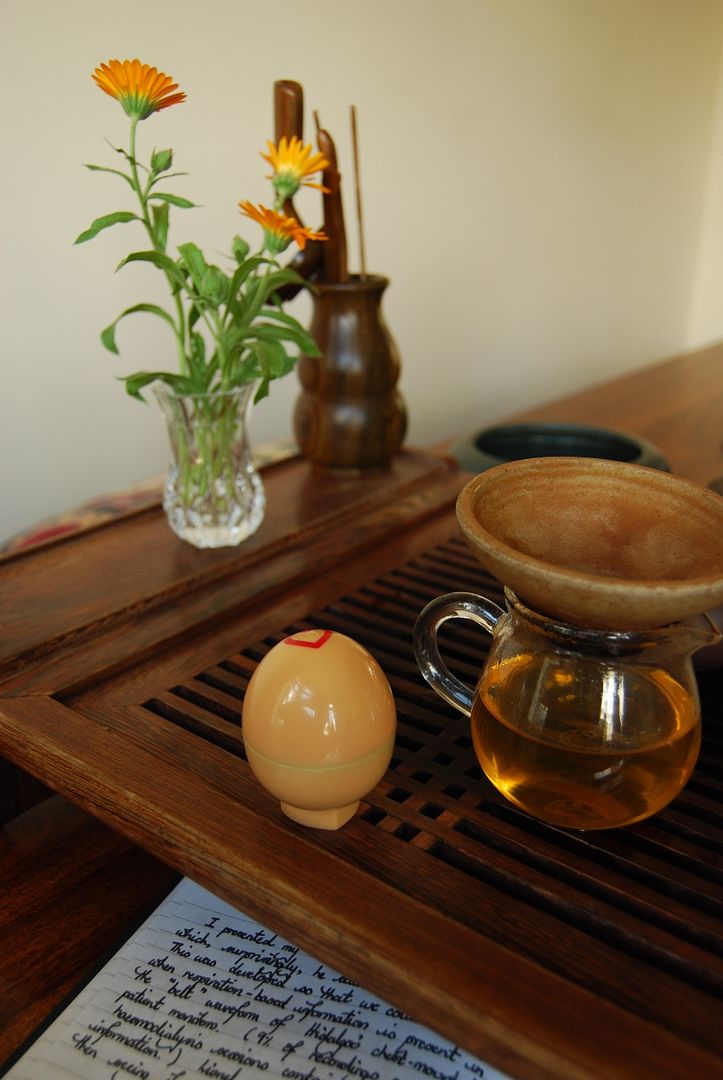

5 comments:
It's north of $200 FOR ONE HUNDRED GRAMS.
You're saying that it's a bargain, right? :)
Toodlepip,
Hobbes
Total bargain!
At least they write "Banzhang" without the "Lao"? Gotta give them a little credit there.
Remember, you can buy
http://www.banateacompany.com/pages/puerh_teas-LaoBanzhang_Ming.html
for $150. Supposed to be Lao Banzhang, and given the good showing of samples I had of its Nannuo and Jingmai sister bricks, this should be well better than any Douji. Enjoy the savings!
Thanks, Shah - I've not come across this brick before, and certainly fancy it!
Toodlepip,
Hobbes
Post a Comment